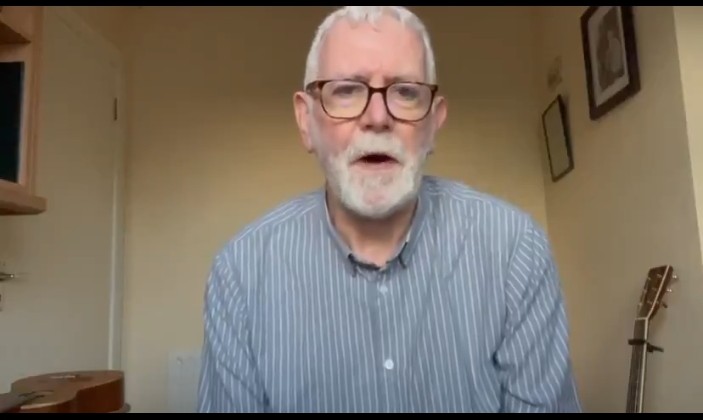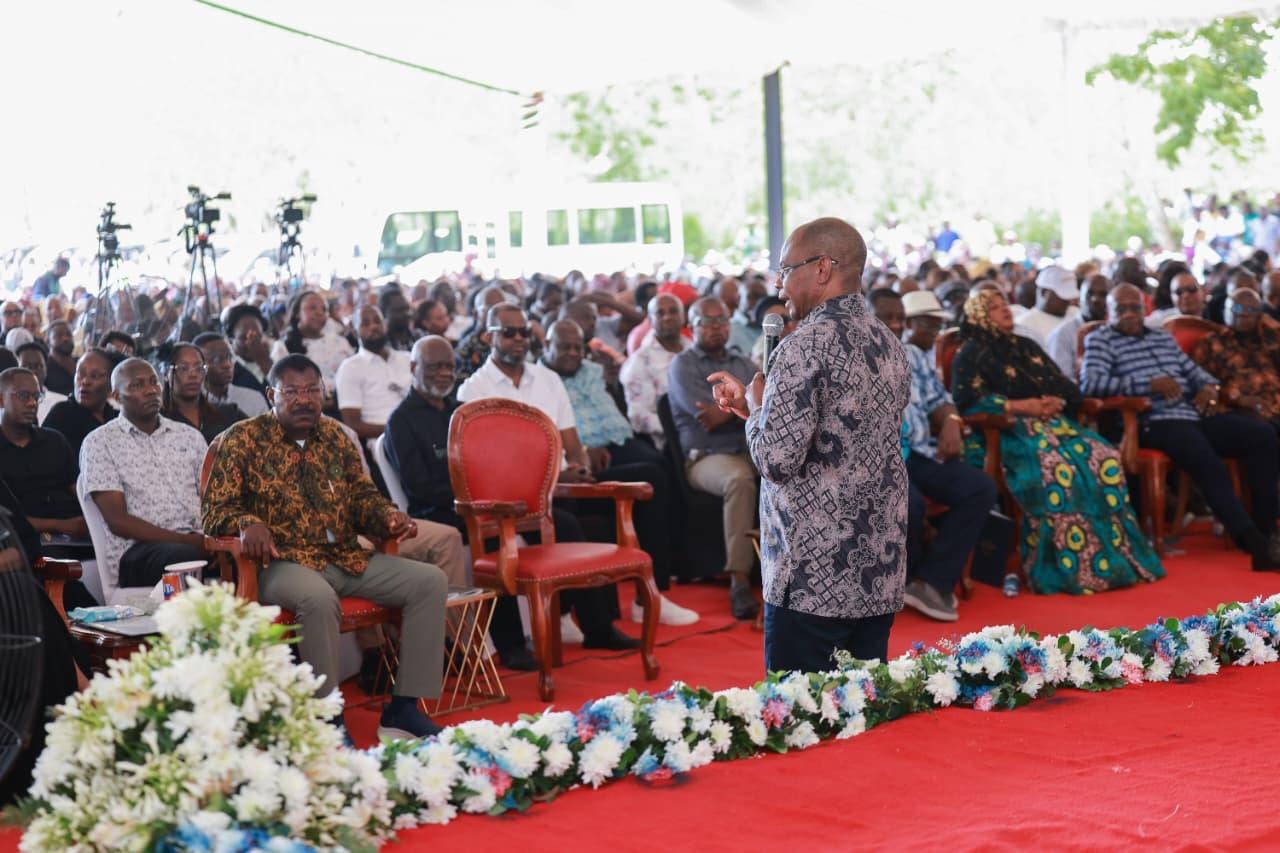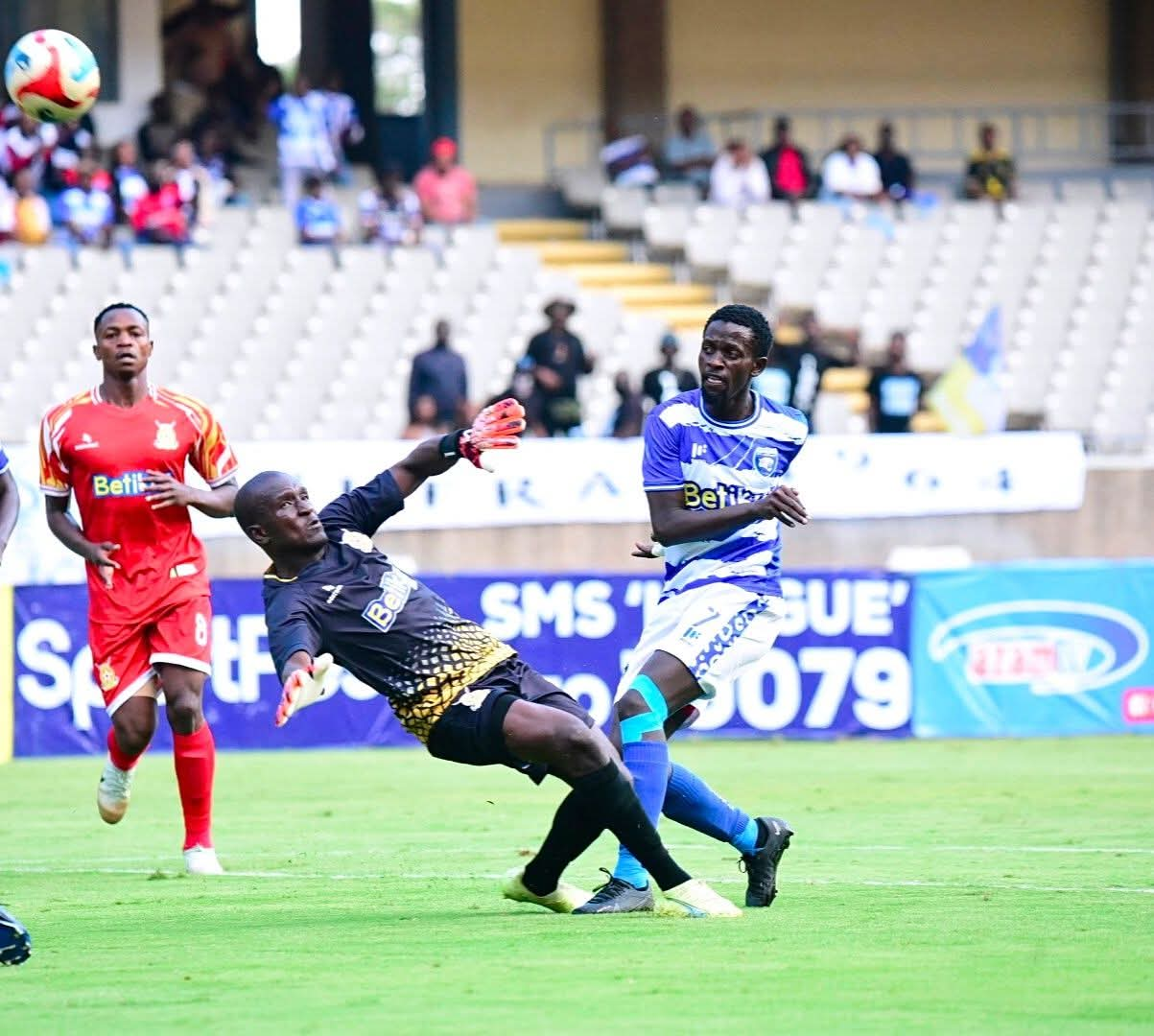Kenya police use tear gas to clear pockets of protesters in Nairobi

At least three journalists were wounded when police fired tear gas canisters close to them, the International Press Association of East Africa, which represents hundreds of journalists in the region, said on X.
Police fired tear gas to clear pockets of anti-government demonstrators from the centre of Kenya's capital, Nairobi, on Thursday, as their protest movement sought to capitalise on earlier concessions and compel President William Ruto to resign.
The "Nane Nane" march, meaning "eight eight" in reference to the date, follows weeks of similar pro-reform protests that saw Ruto scrap planned tax hikes and overhaul his cabinet.
More To Read
- Government sued for "systematic abuse of power" over terrorism charges against protesters
- More Kenyans disappeared during anti-riot operations than during anti-terror operations in 2024, report shows
- BBC investigation links KDF officers to brutality during deadly anti-government protests
- IPOA claims KDF deployment during demos was cover-up for police misconduct
- Police arrest Jimi Wanjigi, accuse him of owning illegal firearms
- How poor communication left Ruto in tight corner
The youth-led nationwide protests began peacefully in June before turning violent, and more than 50 people have been killed.
Shops were shut and streets left deserted after riot police set up road blocks and threw tear gas canisters to disperse handfuls of protesters across Nairobi's financial district. Police fired tear gas at one group of a dozen protesters chanting "Ruto must go", a Reuters journalist reported.
A lone rag-picker was seen gathering up some of the canisters, occasionally wincing as some still appeared to be hot.
 Pro-reform protesters participate in an anti-government demonstration over what organisers say are tax hikes, bad governance, constitutional violations, extra-judicial killings and cost of living, in Nairobi, Kenya, August 8, 2024. REUTERS
Pro-reform protesters participate in an anti-government demonstration over what organisers say are tax hikes, bad governance, constitutional violations, extra-judicial killings and cost of living, in Nairobi, Kenya, August 8, 2024. REUTERS
At least three journalists were wounded when police fired tear gas canisters close to them, the International Press Association of East Africa, which represents hundreds of journalists in the region, said on X.
In what has been the biggest crisis of his two years in office, Ruto bowed to pressure and shelved the new taxes in June after some demonstrators briefly stormed parliament.
Ruto fired his entire cabinet apart from the foreign minister last month, a victory for activists and protesters who had demanded sweeping changes.
Ruto then named opposition members to his cabinet, but activists criticised the move as a corrupt deal and reiterated demands that he resign. They called for far-reaching reforms to tackle corruption and for regional county and national governments to improve service delivery.
Ruto has said the new cabinet reflects national unity and will address the demands of the protest movement. He has promised to investigate alleged abuses by the police during demonstrations but has broadly defended their conduct.
Ruto's reconstituted cabinet was sworn in on Thursday.
"Where Kenya is today, while competition is healthy and good, there is a moment where the interest of a nation is greater than the interest of a political formation," he said in a speech after the ministers were sworn in.
The protests have no official leaders and have been mostly organised online.
Ruto has stepped up criticism of them after initially praising demonstrators for being peaceful.
"We are a proudly democratic country, based on the firm foundation of the rule of law. There is no room for anarchy, chaos and violence," Ruto said in Embu County on Wednesday.
The Kenyan police asked people to avoid crowded areas ahead of Thursday's protests and said it was deploying adequate personnel across the country.
Top Stories Today















































